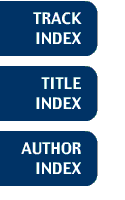
Track: State/Local Government, Cadastral, Land Records
Composing Qatar's GIS Data Dictionaries - Stemming the Tide of Miniature Information Empires
Jeff KuranAll too often, government ministries harbor miniature information empires. These information empires work toward expanding their domain by "owning" every possible information resource they use and tailoring it to suit their specific needs. Unfortunately, this often means they're maintaining data that redundantly exist within another information empire. There, the data are tailored in a slightly different way to suit their specific needs. Ironically, expansion of an information empire is fueled by a lack of information in the hands of those controlling the money. They're subjected to a parade of applications for funds, each claiming to need data in order to provide their mandated service. To disguise any redundancy, it's all too easy to put a different name on the data being sought. If any redundancy is suspected, those slight differences are depicted as significant differences. This picture of government ministries is somewhat exaggerated. They don't usually proceed with deliberately greedy intentions. However, there is enough reality in this portrayal to justify measures to minimize data redundancy (and costs that go with it). Qatar has one level of government. It has chosen to implement GIS throughout all its ministries as though it were one big company. This means common standards across the board. To combat redundant data, all ministries put their data resource needs on the table in the form of GIS data dictionaries. This paper explains why these GIS data dictionaries are composed, how they're used to recognize redundant excess fat data, and how they're used to trim the fat.
Jeff Kuran
The Centre for GIS
PO Box 22088
Doha,
QATAR
Telephone:
Fax:
E-mail: jkuran@gisqatar.org.qa